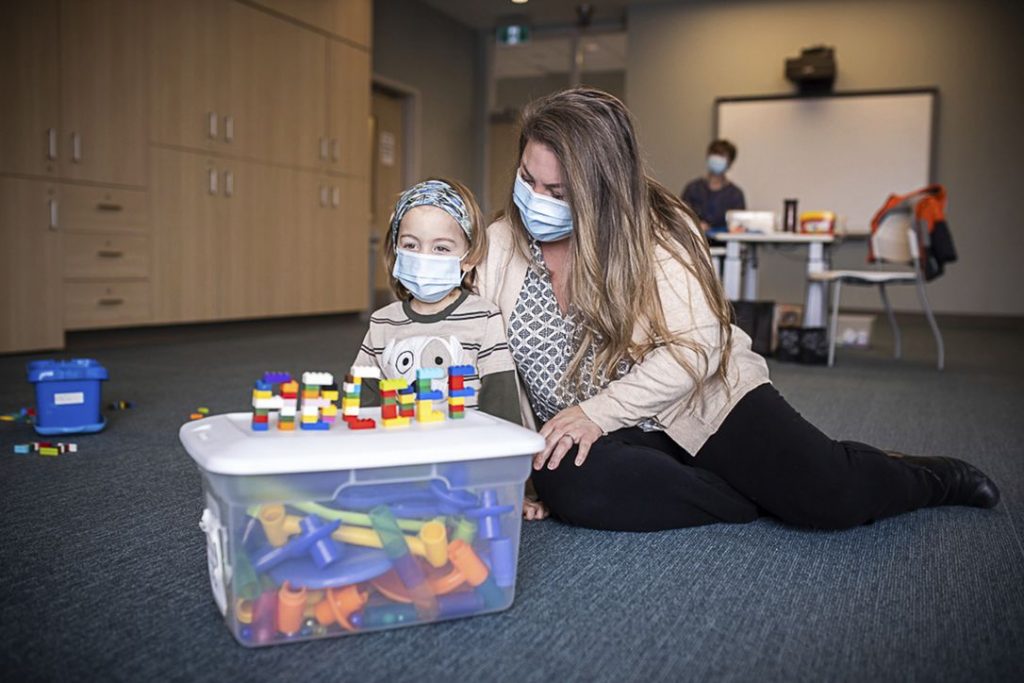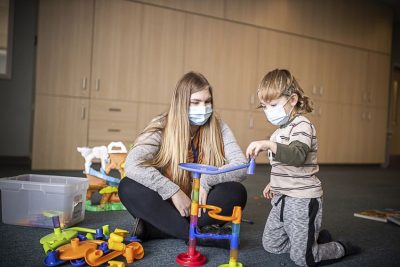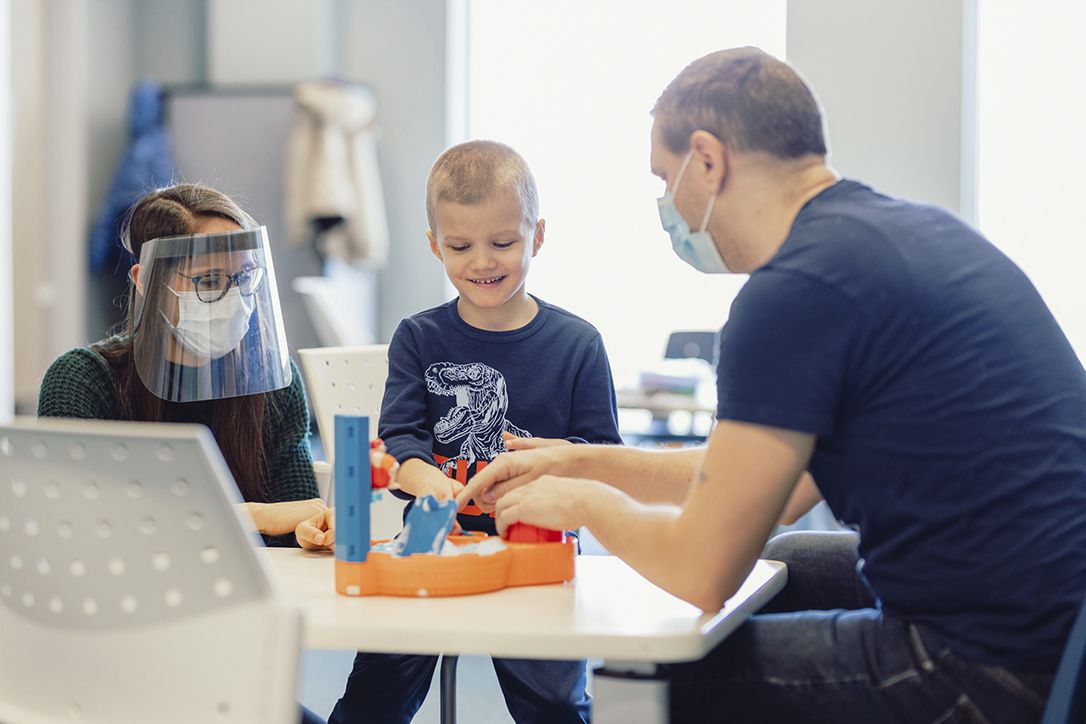
Virtual Autism care brings new opportunities for families
Families from anywhere can access free Autism support services for children — the McMaster Children’s Hospital Autism Program, based in Hamilton, has gone virtual.
Rethinking how we deliver services
Before the pandemic began, many families receiving service had to travel to workshops in person at the Ron Joyce Children’s Health Centre in Hamilton.
Now families just launch the video conferencing software Zoom from home and they’re instantly connected with other families and Autism care professionals.
“The pandemic has made us rethink how we deliver services to children and youth with Autism and their families,” says Kathleen Dekker, clinical leader with the McMaster Children’s Hospital Autism Program.
Families can now access many of the workshops and services the program offers virtually, including parent and caregiver workshops and training, consultations, clinic appointments, a parent support group, an expert speaker series, and group recreational and clinical programs.
Responding to the needs of families
At the beginning of the pandemic, the clinicians and staff behind the program asked themselves, “how do we respond to the needs of clients and their families in a way that ensures their safety and the safety of the providers?” says Dekker. In response, they pivoted their offerings, revealing many unexpected benefits for families in the process.
“We were able to maintain that ongoing clinical support but offer it virtually to maintain seamless services for families,” says Dekker. Offering virtual care has allowed the program to be nimble and responsive to families based on their different needs.
“Virtually we’ve been able to be creative and try new things,” says Dekker.

“Families need to have the technology to engage in the virtual sessions, as they participate from their homes,” says Dekker. The virtual care model has removed some of the barriers to attending and increased opportunities for families to participate, she adds.
“When we shifted to a virtual model for the workshops, we found that the attendance and engagement of parents and families increased as compared to when previously offered in person,” says Dekker.
Virtual care has its benefits
Now that many of the events and workshops aren’t bound to a physical space, families don’t need to spend the time and energy driving and they don’t have the expense of parking. Virtual sessions can also be easily accessed by signing into a session or workshop on a device.
In addition, attending group programs and workshops from home can help children with Autism and their parents feel safe and comfortable and help them learn and use the skills within the context of their own home.
The program used to hold monthly Family Nights that offered a range of activities for all family members within the event— recreation for the children, activities for their siblings, and a group session for their parents, Dekker explains. However, because of the pandemic, the program has had to cancel these in-person events.
Now, virtual events have replaced them including a virtual half-hour Coffee and Chat group for parents and caregivers every week. The sibling support group has become a 6-week program unto itself that covers a range of topics and provides a virtual social opportunity for siblings aged 7–13.
Parents and their children with Autism can now attend many clinical group programs and education sessions from home, on a diverse range of topics including Children’s Friendship Training, Improving My Child’s Sleep, and Virtual Learning. A number of clinical programs with specific curriculum are also now offered virtually.
Fun and creative programming
In the virtual recreational programs, the child has the opportunity to participate in different activities and practice using various skills in a fun, supportive social setting with peers.
High school students can participate in weekly Homework and Hangout sessions that give them the chance to come together in a virtual session, receive and share homework tips, and talk about strategies they find helpful.
Virtual sessions tend to bring parents into the therapeutic experience in a way that is different than in-person sessions, says Dekker. With Zoom sessions, parents of particularly younger children need to be engaged along with their child.
“It’s kind of nice because [Zoom sessions] allow the parent to watch and participate with the support of coaching from the clinicians, and then take those ideas and strategies and carry them through at home,” she says.
Staff let families know if there are specific supplies they need for a virtual session. If resources are needed, families can pick up them up from the Ron Joyce Children’s Health Centre through a curbside pick-up process.
“There’s still very much a place for in-person care,” says Dekker. “It really is a discussion between the families and clinician in terms of what the goals are and what is most appropriate given a range of considerations for both the child and family. The option of virtual care in addition to in-person appointments allows the Autism Program to be responsive to ongoing and changing needs of children, youth and their families.”
Originally published in The Hamilton Spectator, March 31, 2021.

